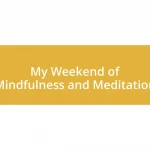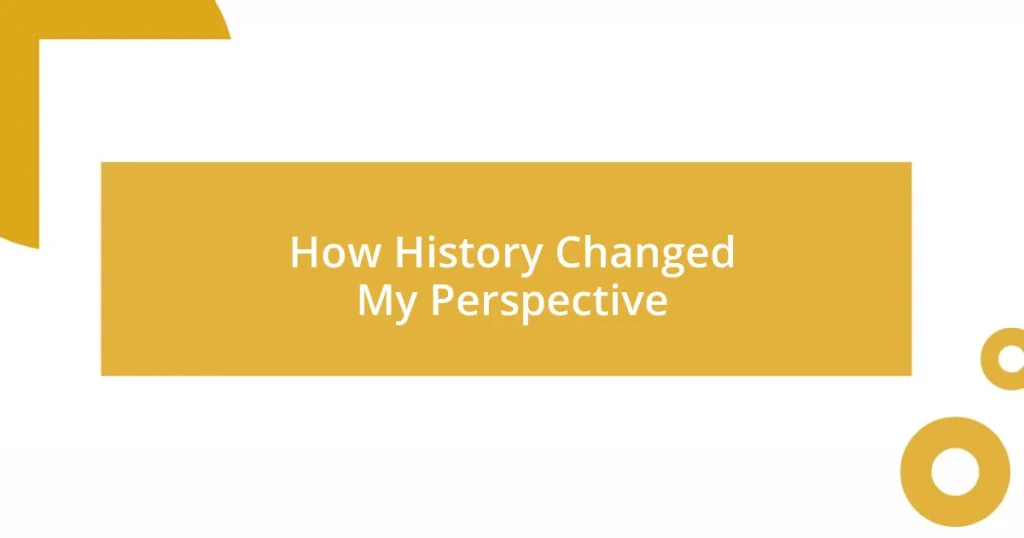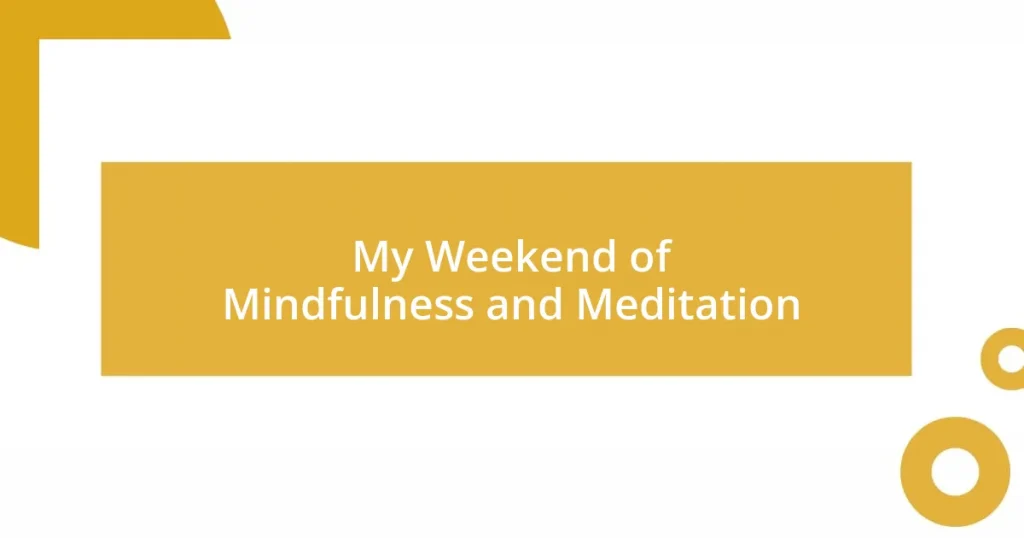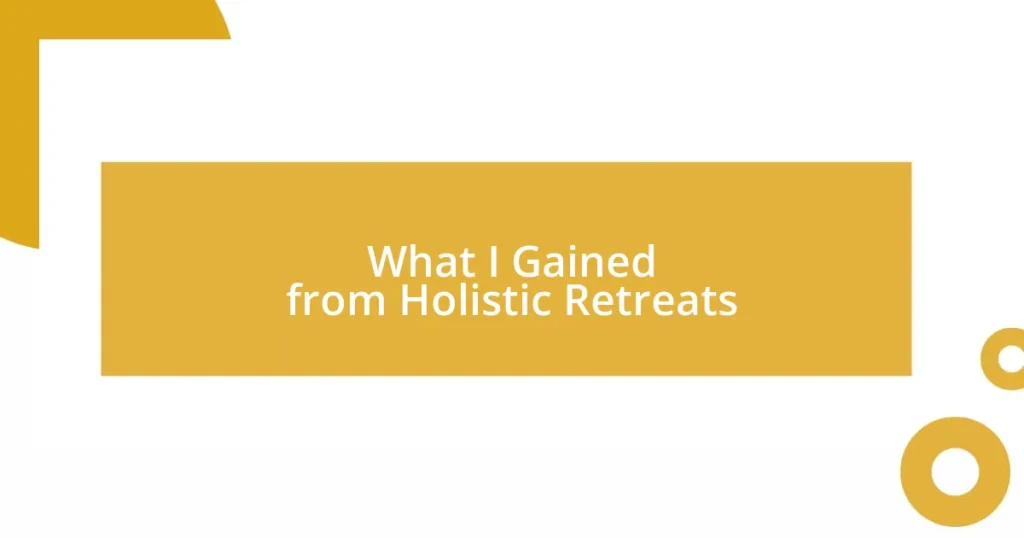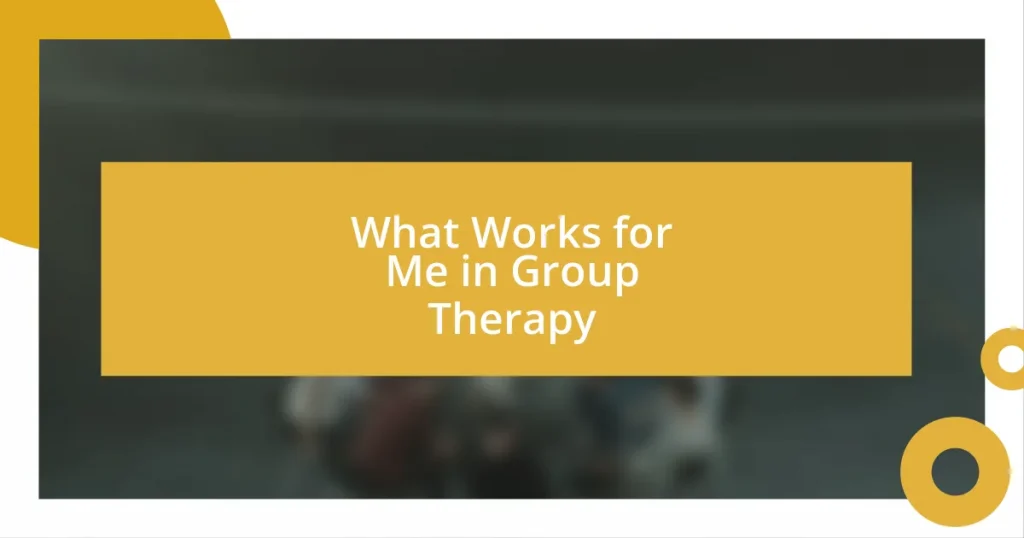Key takeaways:
- History serves as a powerful reminder of ongoing struggles for justice and equality, urging us to learn from past sacrifices.
- Personal experiences with historical events deepen our appreciation for freedom and collective resilience, inspiring action in the present.
- Key historical figures teach valuable lessons on non-violence, creativity, and the impact of individual actions in effecting change.
- Historical awareness empowers individuals to recognize their role in society and motivates involvement in grassroots movements for progress.
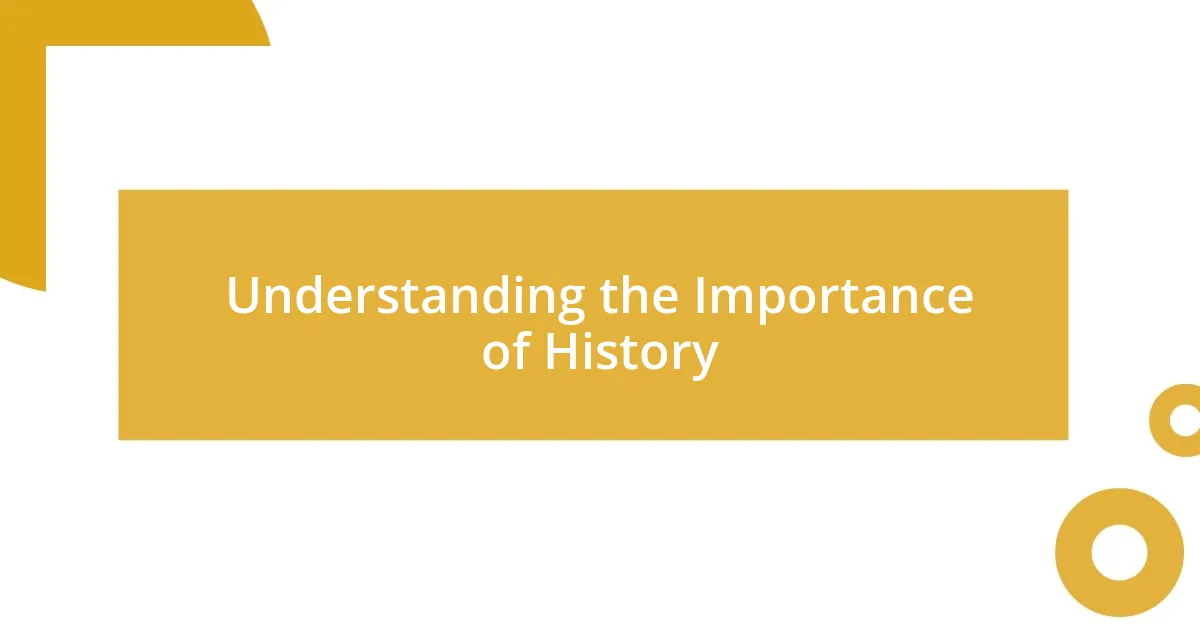
Understanding the Importance of History
History isn’t just a collection of dates and events; it’s the story of us. I remember the first time I stood in front of an ancient ruin, feeling an inexplicable connection to those who walked there before me. It struck me how the choices made by past societies shape our world today, making me wonder—what lessons can we learn from their triumphs and failures?
When I reflect on pivotal moments in history, like the civil rights movement, it’s impossible not to feel the anger, hope, and determination that fueled those who fought for justice. This emotional landscape gives context to our current struggles, reminding me that the fight for equality is ongoing. Have you ever felt that deep sense of urgency when learning about the sacrifices of those who came before us? It’s a powerful reminder that history is a living narrative, urging us to take action in the present.
Each historical event carries its own weight, influencing the societal norms and values we live by today. I often think about how my understanding of history influences my perspectives on current issues. For example, seeing parallels between past injustices and present-day challenges is both sobering and enlightening—what would change if we all took a moment to consider the stories history tells us?
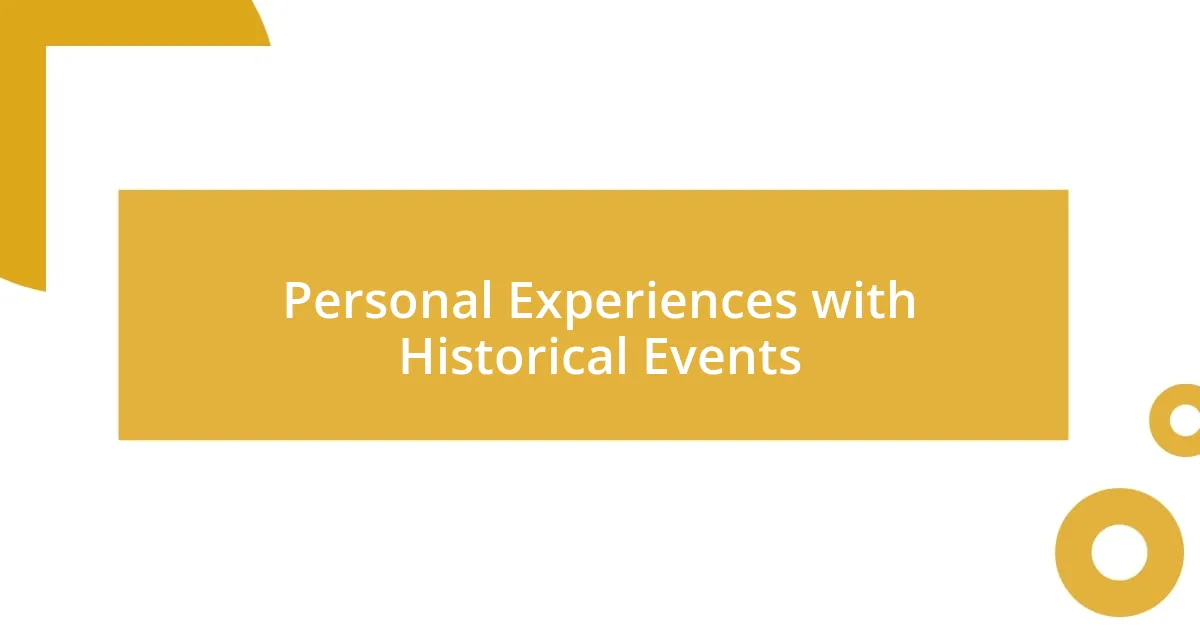
Personal Experiences with Historical Events
My personal journey into history often intersects with profound moments. I vividly recall visiting a World War II memorial. The quiet reverence around me and the haunting inscriptions on the walls gave me chills. It hit me hard as I read the names—the weight of loss and the sacrifice made by countless individuals. I felt a deep responsibility to honor their legacy, realizing that my perspective on freedom and sacrifice would be forever changed.
- I’ve often found myself drawing parallels between the challenges faced during the Vietnam War and today’s ongoing discussions about military engagement.
- Witnessing the resilience of communities recovering from natural disasters reminds me of historical events where societies bonded together in times of adversity, amplifying my appreciation for collective human strength.
- There was a moment when studying the women’s suffrage movement that made me tear up; thinking about the decades of struggle made me grateful for the freedoms I have today.
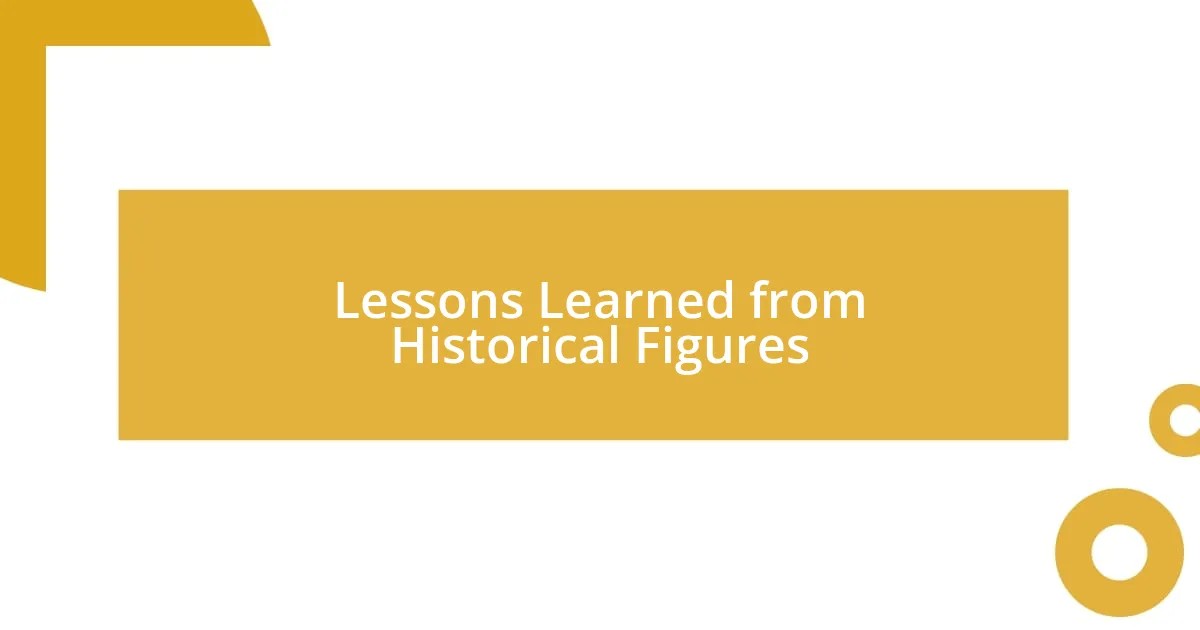
Lessons Learned from Historical Figures
Reflecting on historical figures often reveals remarkable lessons that resonate deeply with our lives today. For instance, I once read about Mahatma Gandhi’s commitment to non-violent resistance, and it made me reconsider how to approach conflicts in my own life. The idea that change can occur through peaceful means is both inspiring and grounding, encouraging me to promote understanding rather than discord in challenging situations.
On a different note, studying the revolutionary ideas of figures like Albert Einstein has sparked my curiosity about the power of creativity and critical thinking. I remember a time in college when I felt overwhelmed by rigid academic structures. Learning about Einstein’s intellectual rebellion against norms helped me embrace unconventional thinking, allowing me to become more innovative in my approach to problem-solving. It made me realize that true progress often comes from questioning the status quo.
Lastly, examining the life of Rosa Parks has taught me about the power of individual action. When I learned how a single decision sparked a movement, I felt a rush of empowerment. It made me ponder my own responsibilities in the community—every voice counts, and sometimes, standing firm for what is right can ignite change. Have you experienced a moment where a historical figure inspired you to take a stand or change your perspective?
| Historical Figure | Lesson Learned |
|---|---|
| Mahatma Gandhi | The importance of non-violent resistance in enacting change. |
| Albert Einstein | The value of creativity and questioning norms in problem-solving. |
| Rosa Parks | The impact of individual action in sparking collective movements. |
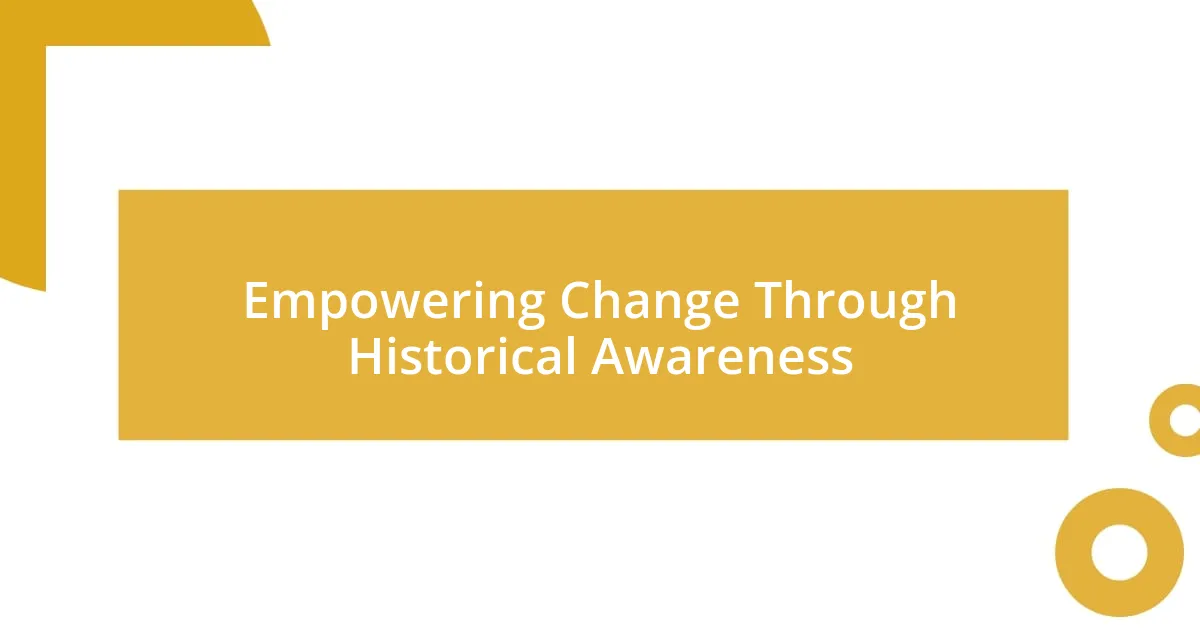
Empowering Change Through Historical Awareness
Understanding history allows us to appreciate the struggles and triumphs that have shaped our world. I recall a moment during a lecture on civil rights when the professor shared a personal story about his parents’ activism. The passion in his voice transported me to that era; it was as if I could feel the weight of their efforts. It made me reflect: how often do we overlook the significance of such movements in our own lives?
As I dove deeper into the history of social movements, I started recognizing the patterns of resilience. Reading about the Stonewall Riots, I was struck by the bravery of those individuals standing for their rights. I remember feeling a profound sense of admiration—how could a group of marginalized voices spark a revolution? It dawned on me that change often begins with those willing to speak out. Could I demonstrate that same courage in my own life?
Moreover, historical awareness has empowered me to take action in my community. When I learned about the tireless efforts of activists like Ella Baker, I thought about the importance of grassroots movements. It ignited a fire in me to become involved in local initiatives. I wondered: what legacy do I want to leave behind? Realizing that each small action contributes to a greater narrative has changed my perspective on my role within society.
